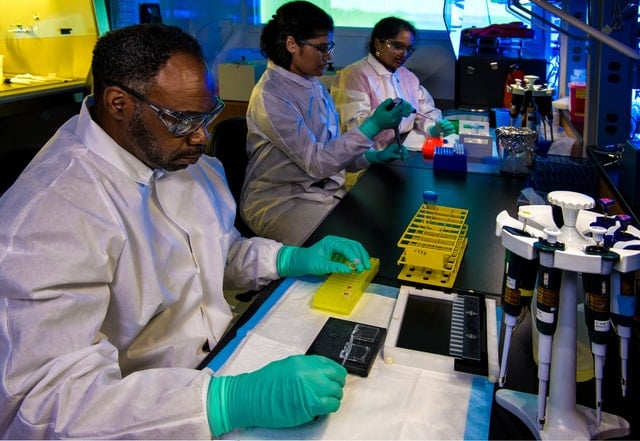Research chemical B7-33 peptide has shown promising results in treating serious diseases. Acute and chronic diseases such as heart failure, lung, and kidney disease can benefit from this treatment. Buy B7-33 peptide right away if you’re a member of the scientific community. Research products manufactured in the United States are available for purchase from us. Continue reading to learn more about the B7-33 peptide research.
Table of Contents
What is the B7-33 Peptide?
Peptide B7-33 (B7-33) is an effective treatment for fibrosis in several acute and chronic diseases such as heart disease, inflammatory bowel disease, and kidney disease. Allergies, autoimmune and inflammatory diseases, and cancer benefit from its use. Through the use of Th1 and Th2 cells and Th17 cells, we were able to demonstrate the beneficial effects of C7-33 peptides on immune-associated illnesses and chronic conditions.
A therapeutic peptide, C7-33, has been an important cytokine in immune and inflammatory responses. The 31 IL-1 C-terminal amino acids make up this molecule’s C terminus. T and NK cells are known to produce these cytokines. Innate immune cells produce the pro-inflammatory cytokine IL-1, regulating the innate immune system.
Inflammation is tightly controlled by it. To activate the inflammatory pathway and produce other immune-regulatory proteins such as TNF- and IL-6 in response to damage or infection is the role of IL-1. C7-33 peptide inhibits IL-1-induced Th1 cells, Th17 cells, and Th2 cells in vitro, as demonstrated in this study. In vivo tests showed that these findings were beneficial. Because of this, we believe C7-33 could be a promising candidate for treating immune-related diseases and long-term conditions.
B7-33 Context
Inflammation is a key factor in developing a wide range of illnesses. Cytokines regulate immune and inflammatory responses. The pro-inflammatory-inflammatory cytokine interleukin (IL)-1 is essential for the immune-inflammatory response. IL-1 is the source of a small peptide now known as IL-1. Survival of cells, inflammation and the immune response are all dependent on interleukin-1 beta binding to IL-1R1, which is found on the IL-1 receptor type 1 (IL-1R1). Many diseases’ pathological processes are aided by IL-1.
Peptide C7-33 comprises 31 amino acids from the C-terminus of IL-1 and the structure depicted in Figure 1. IL-1 and C7-33 elicit similar inflammatory responses in the body. As a first step, this study aims to illustrate the efficiency of C7-33 in attempting to control and inhibit inflammatory T cells and the ability of C7-33 to improve the immune response and treat chronic immune-related diseases.
Results of Research
By inhibiting inflammatory Th1 cells, Th17 cytokines, and regulatory Th2 cells in the presence of IL-1, the C7-33 peptide has anti-inflammatory properties. These findings were found to have a positive impact on the human body.
B7-33 Has Many Uses
Background Asthma and obesity are both long-term inflammatory diseases. Adipose tissue inflammation is a hallmark of obesity. Inflammation is regulated by adipokines produced by adipose tissue. Adipokines, which are hormones produced by fat cells in the body, were examined to see if they were elevated in obese adults with asthma. Design As of 2013, this cross-sectional study has been completed.
Conclusions for the Peptide B7-33
Th17 cells, which secrete inflammatory cytokines, and regulatory Th2 cells, which regulate immune responses, are all inhabited and controlled by the small peptide C7-33. Immune-related diseases and chronic conditions may benefit from its use.


